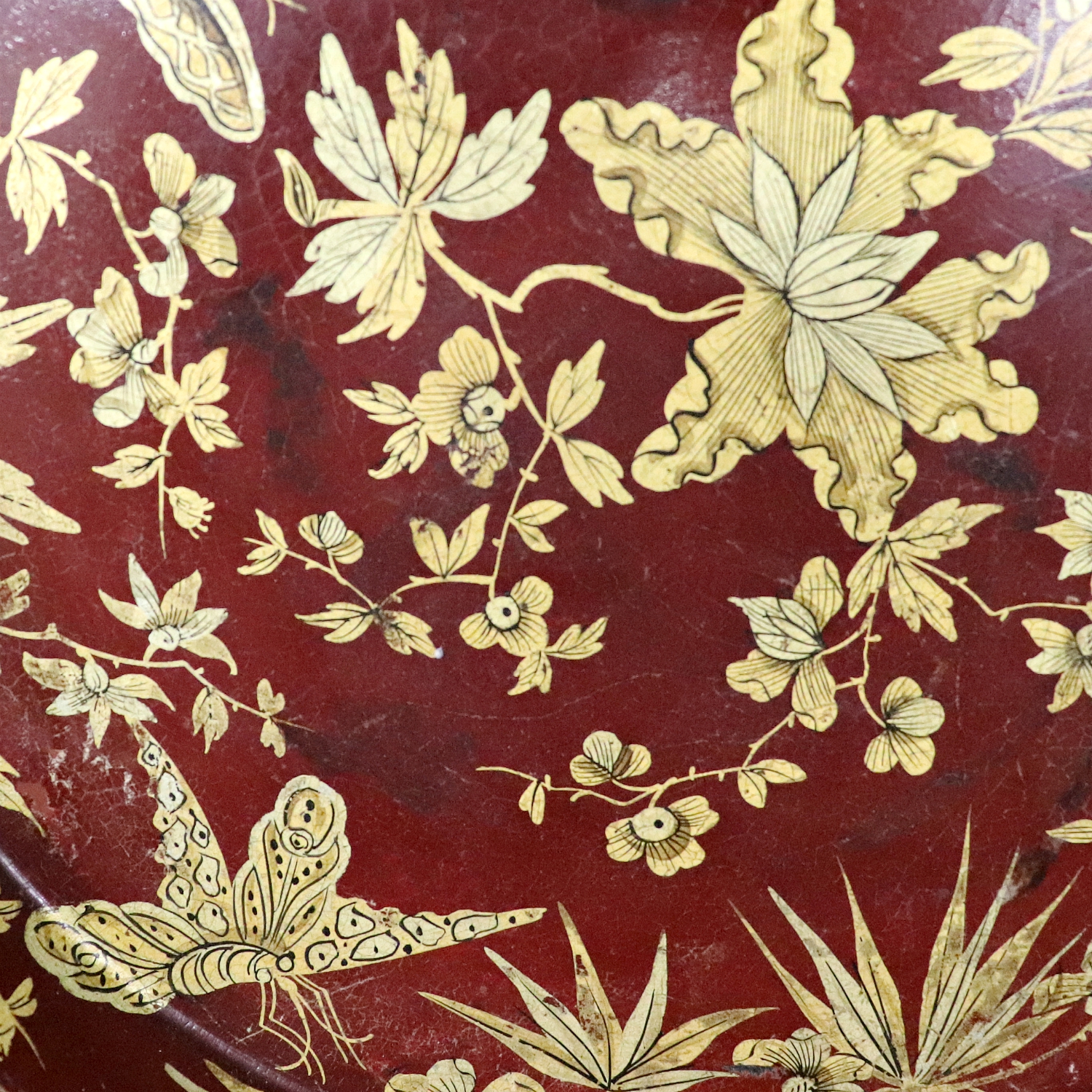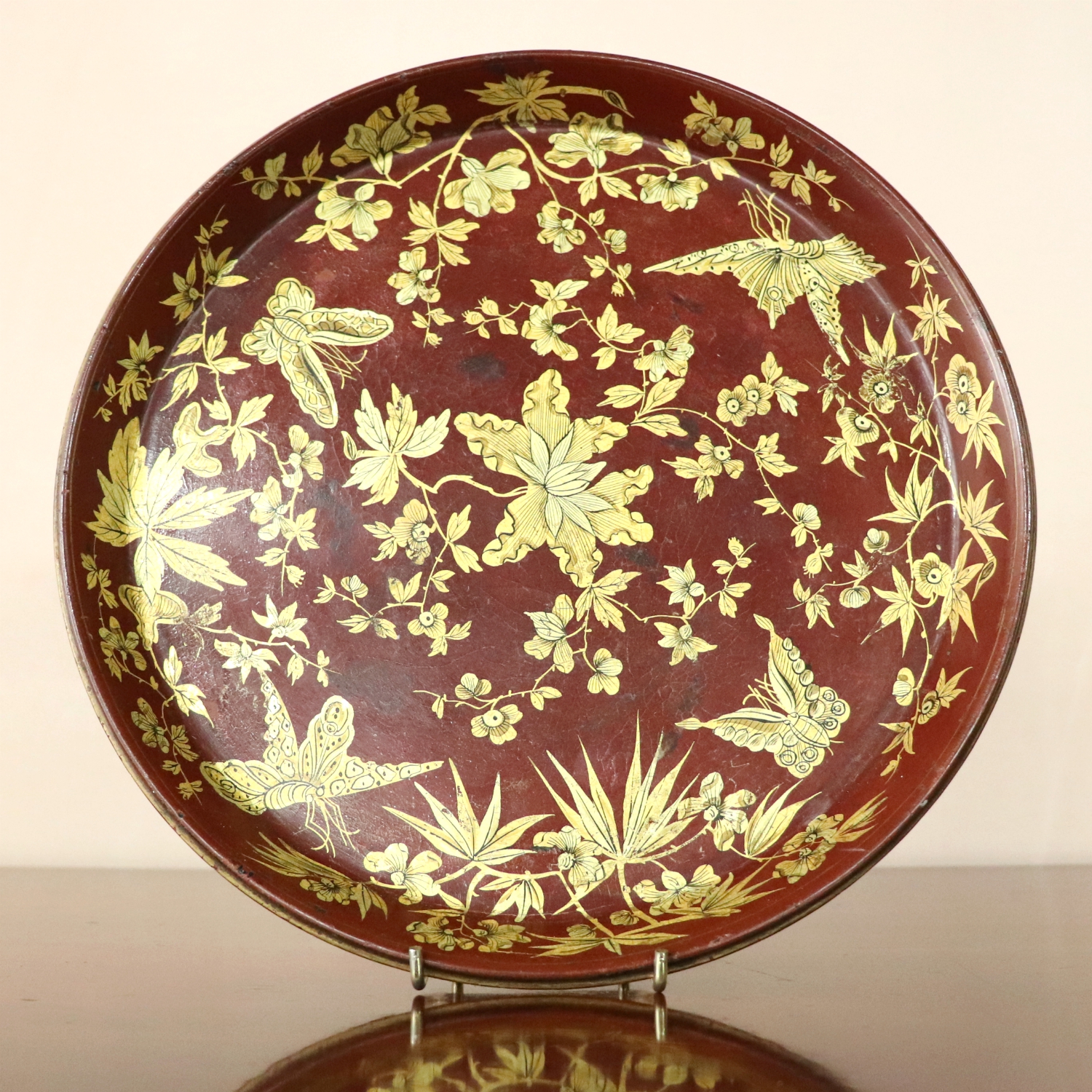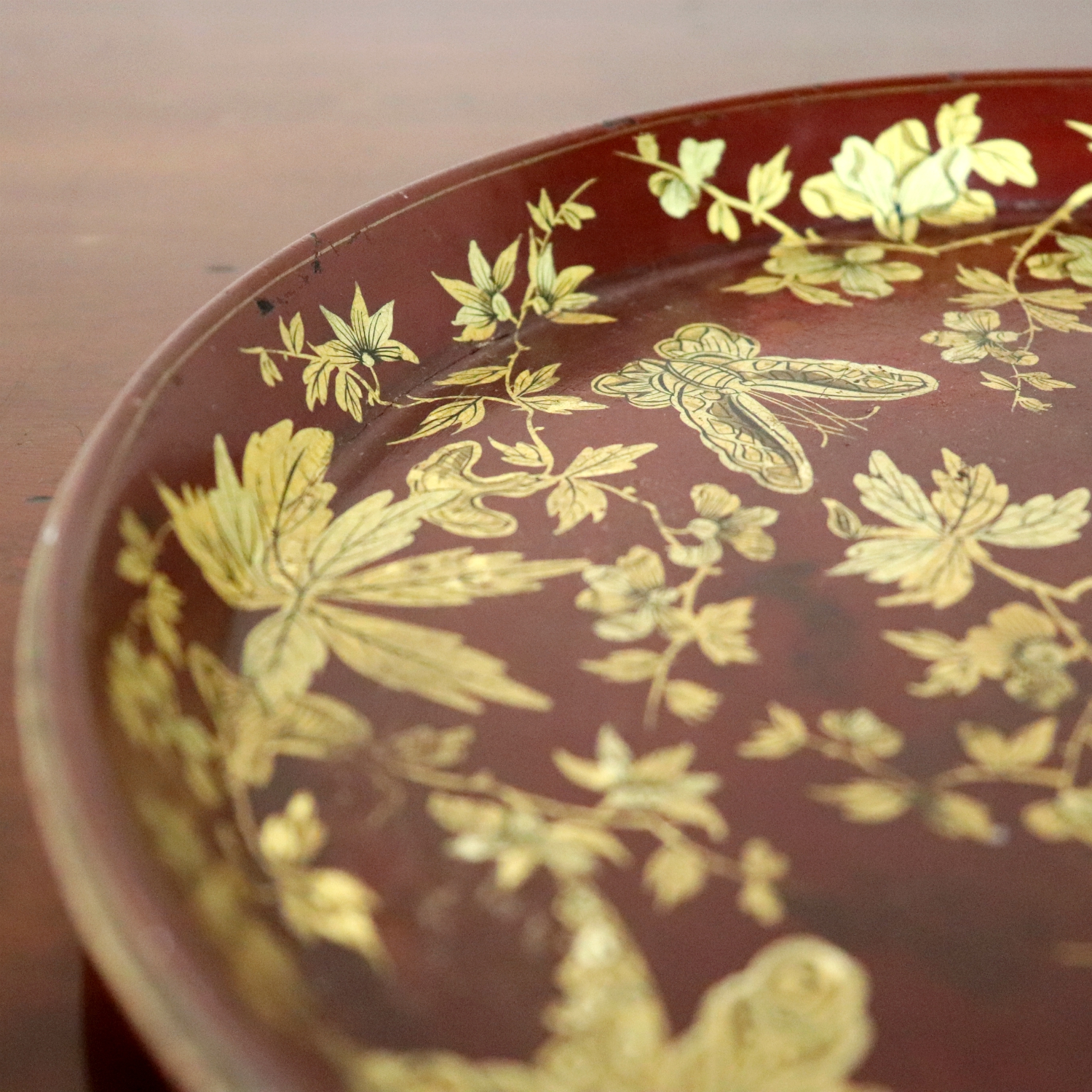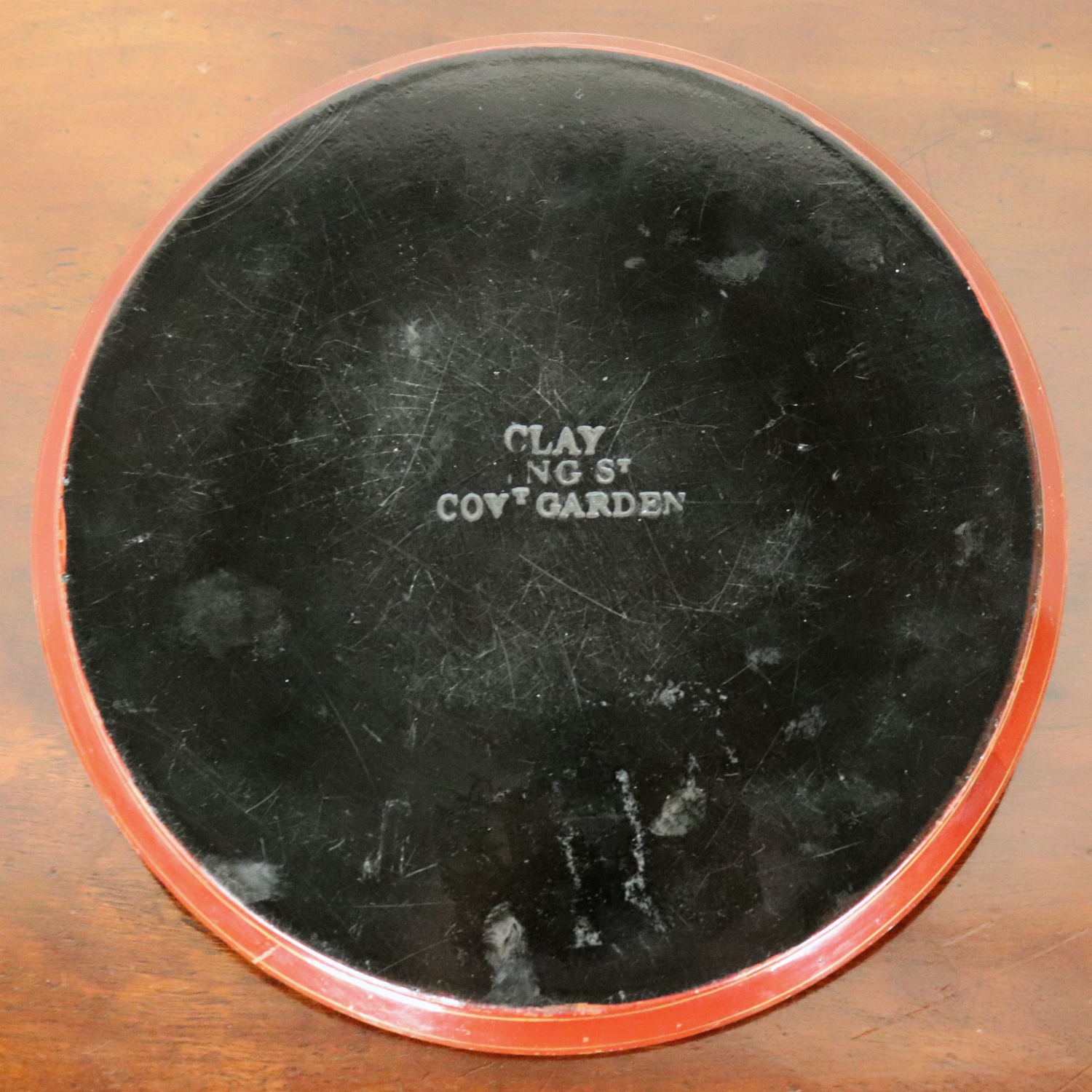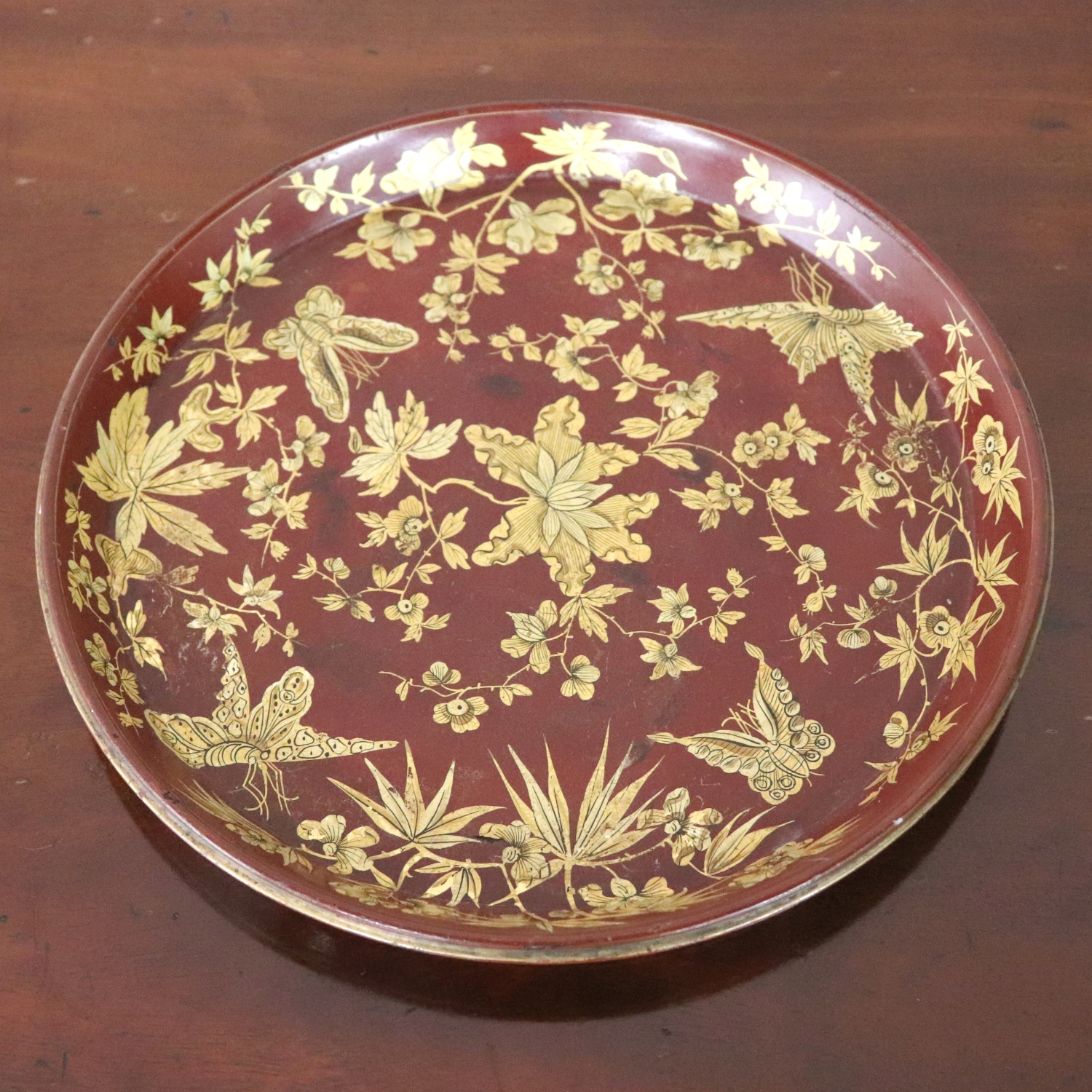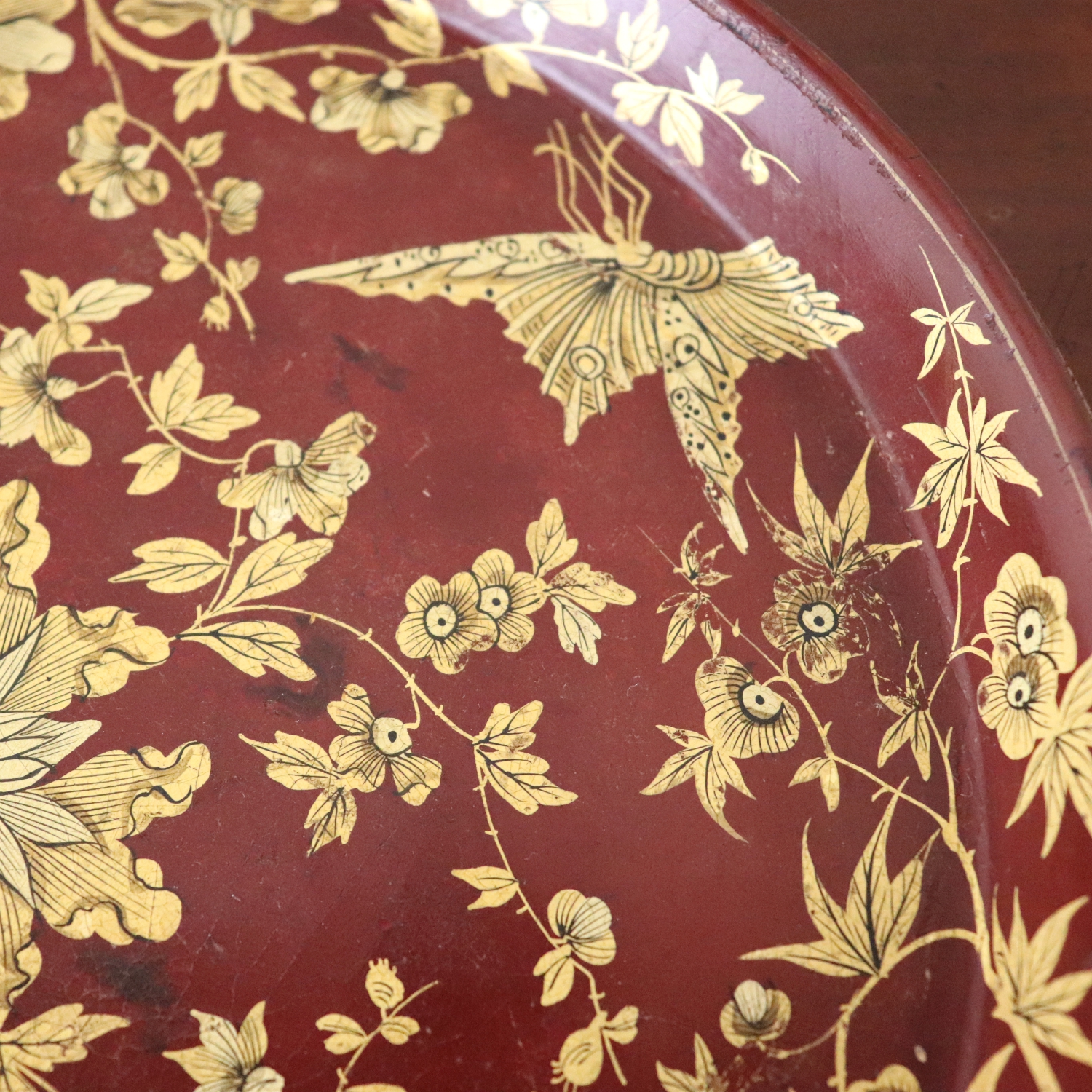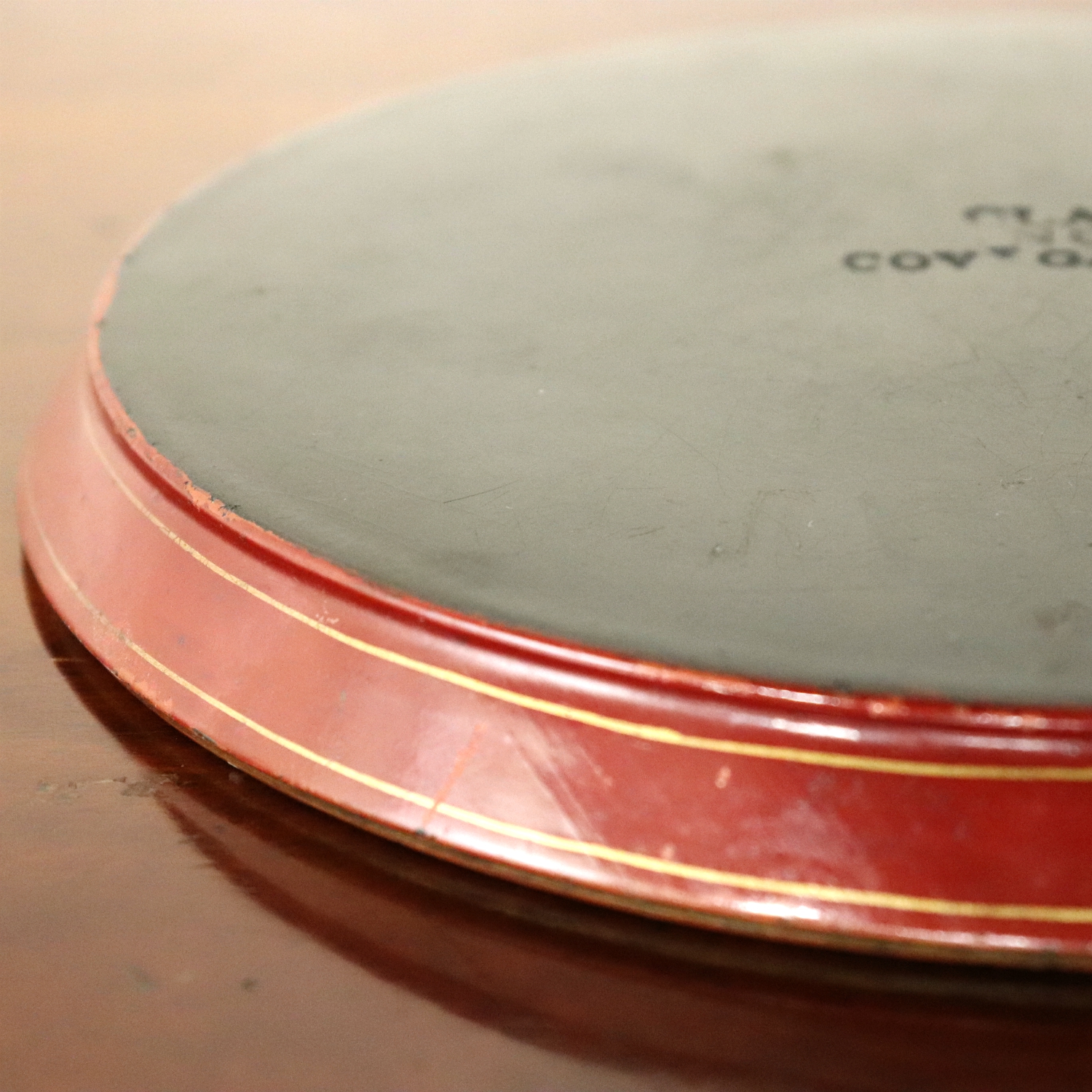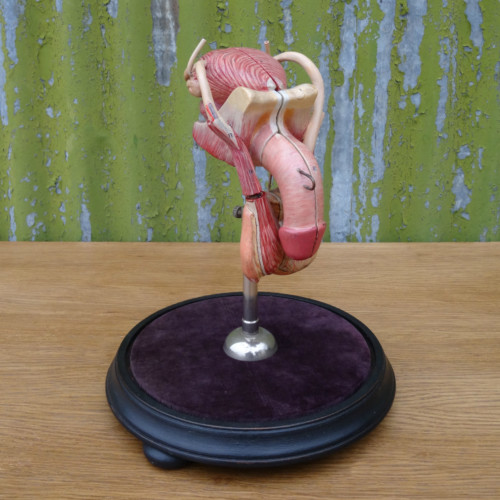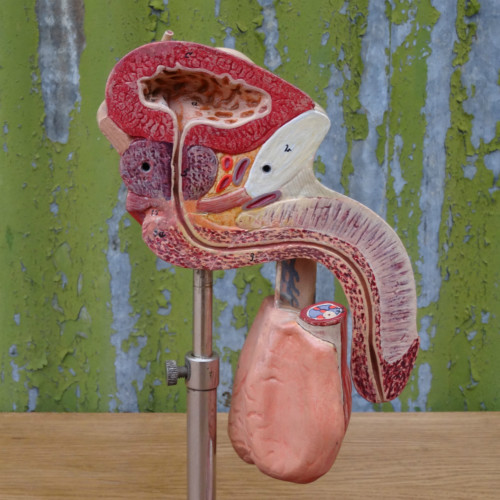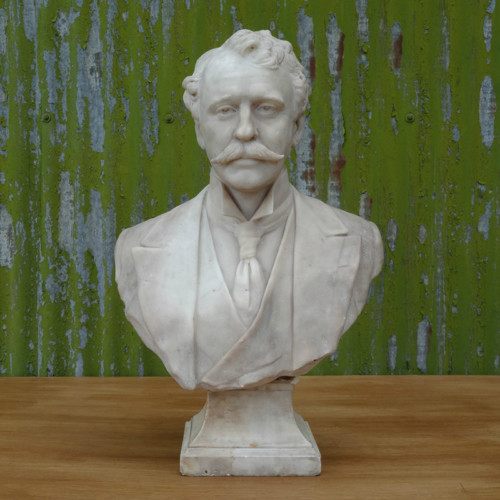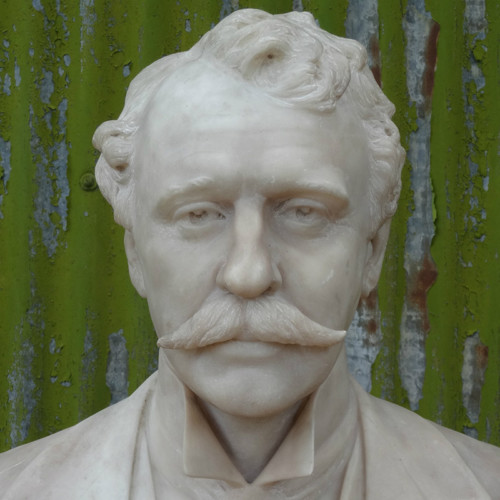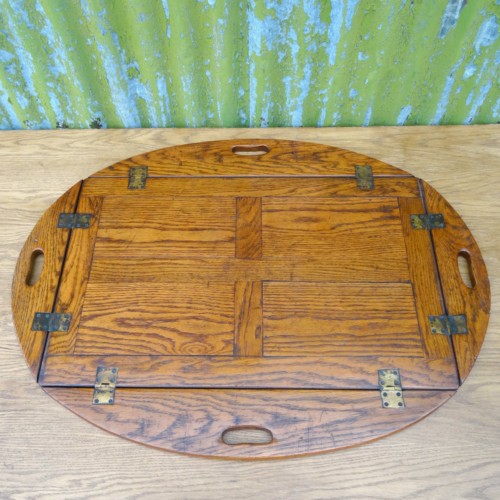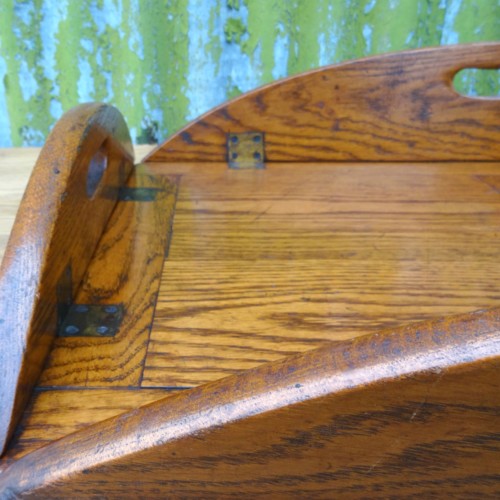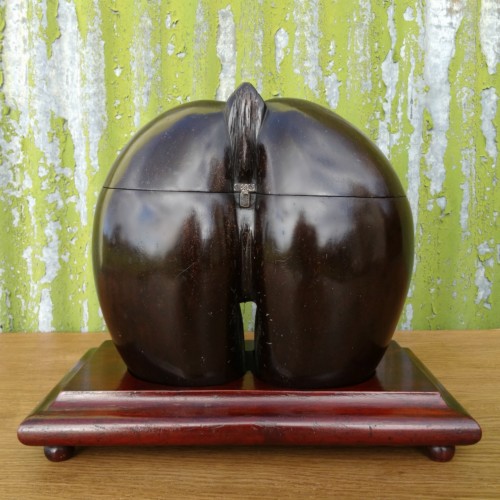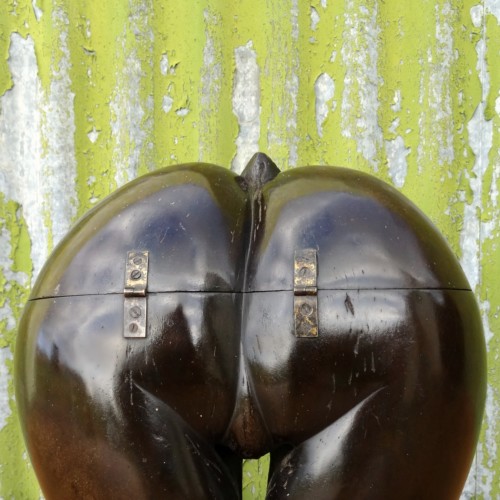A rare oxblood and gilt decorated papier-mâché waiter, circa 1810, by Henry Clay, London, stamped ‘Clay, (K)ing St, Covt Garden’, in good untouched condition, minor wear.
Clay Papier-mâché Waiter
Dimensions: 26cm diameter, 2.3cm high
Footnote
Henry Clay of Birmingham and London was a japanner and papier-mâché manufacturer. Apprentice to John Baskerville of 22 Moor St, Birmingham from 1740–49. He then became a printer, but the wealth and fame that he subsequently achieved was based upon a patent taken out on 20 November 1772 for a ‘new Improved Paper-ware’. This involved pasting sheets of paper together and then oiling, varnishing and stove-hardening them. This process produced panels suitable for coaches, carriages, sedan chairs and furniture. It was claimed that the material could be ‘sawn, planed, dove-tailed or mitred in the same manner as if made in wood’. The trade in this new material developed rapidly with smaller furniture wares such as teatrays, waiters, caddies and dressing cases finding particular favour. These were japanned and decorated with painted scenes and classical (Etruscan) and Chinoiserie subjects; and in some items Wedgwood cameos were employed. The wares that emerged from his works at 19 New Hall St, Birmingham found favour with the rich and influential, and in 1790 his status was such that he was appointed High Sheriff of Warks. He employed as his London agent Thomas Eagles of Bedford St. At this early phase his wares may bear the impressed mark ‘CLAY PATENT’ with sometimes a crown over the name.
About 1785 Clay transferred his business to London, trading from 18 King St, Covent Garden, though production continued in Birmingham until at least 1801. He had been reported in 1781 as producing ‘Several pieces of superb furniture which now adorn the royal residences’ and King George III seemed happy in expressing his utmost approbation. In 1792 he claimed the title of ‘Japanner to His Majesty’ and by 1803 was incorporating in his billhead the words ‘Japanner in ordinary to His Majesty and to His Royal Highness the Princes of Wales’. Clay died in 1812 reputably worth £80,000, all made from his papier mâché manufactures. The business was however continued in London at his King St address until 1822, and also under the style of W. Clay & Sons at an address in Fenchurch St with showrooms in Haymarket. Clay’s patent had expired in 1802 however, and a number of rival producers set up including Jennens & Bettridge who opened up in 1816 in Henry Clay’s former Birmingham works. Wares by Clay produced in this London phase are found with the impressed mark ‘CLAY, KING STREET, COVENT GARDEN’. Large pieces are frequently so marked, but smaller items are less likely to be.
Clay’s commissions for the Royal family, the nobility and gentry are well documented. As early as 1776 Boulton & Fothergill reported him as making japanned knife cases [Goodison, Ormolu, p. 135]; and in 1778 Horace Walpole purchased two waiters, a card rack, a tea caddy and a table decorated by Paul Sandby, from him. By 1787–88 Clay was supplying waiters, tea boards etc. to Carlton House for the Prince of Wales, and in June 1800 supplied him with four large paper tea trays finely painted with four views of the Landgrau of Hessen-Cassel at a cost of 25 guineas each.
On 27 May 1793 Queen Charlotte accepted a sedan chair decorated with copies of Guido paintings, and console tables similarly finished. A japanned mahogany Pembroke table in the Etruscan Room at Osterley Park, Middlsex, is identified in a 1782 inventory as originating from Clay’s manufactory; and the doors in the Hall at Kedleston, Derbyshire., were decorated by him. Clay’s name appears in the Longford Castle accounts, 1778–86, and the Stoneleigh Abbey accounts in 1790. Other known patrons included Lady Howard de Walden (1785), Lady Grenville (1794), Sir Thomas Baring (1798), 6th Duke of Bedford (1803–18), Lord Braybrooke (1810), and the Duke of Northumberland.
Taken from the ‘Dictionary of English Furniture Makers 1660-1840’, originally published by W.S. Maney and Son Limited, Leeds, 1986, now online https://www.british-history.ac.uk/no-series/dict-english-furniture-makers/c

